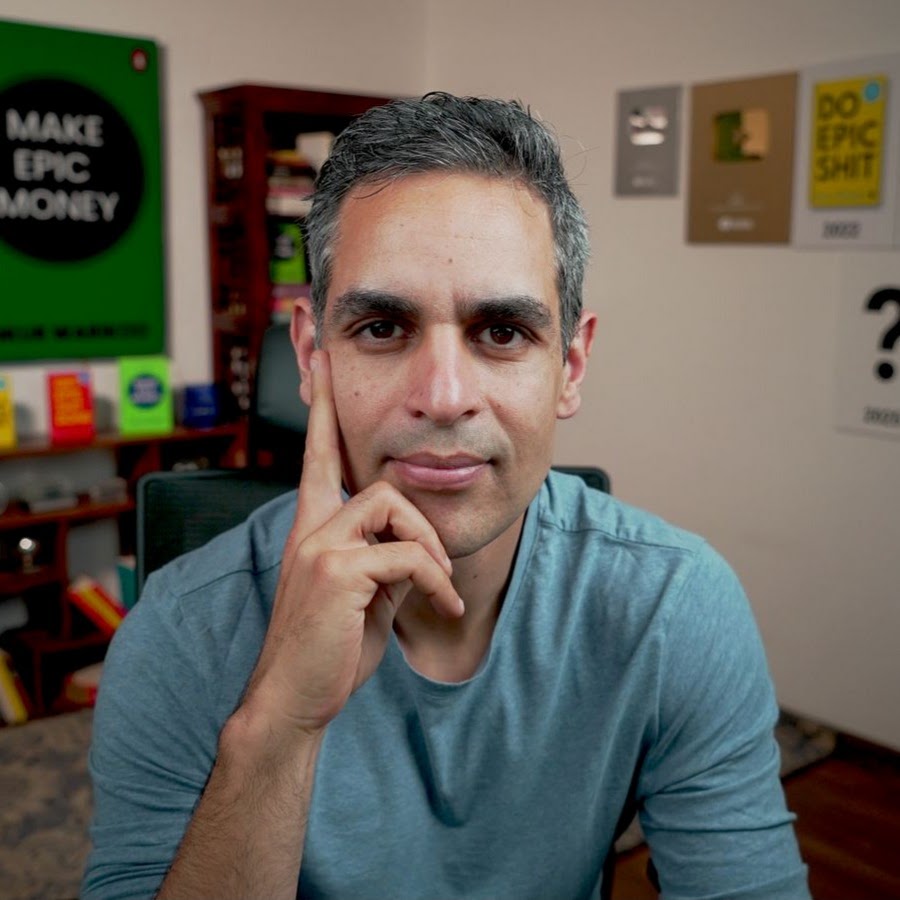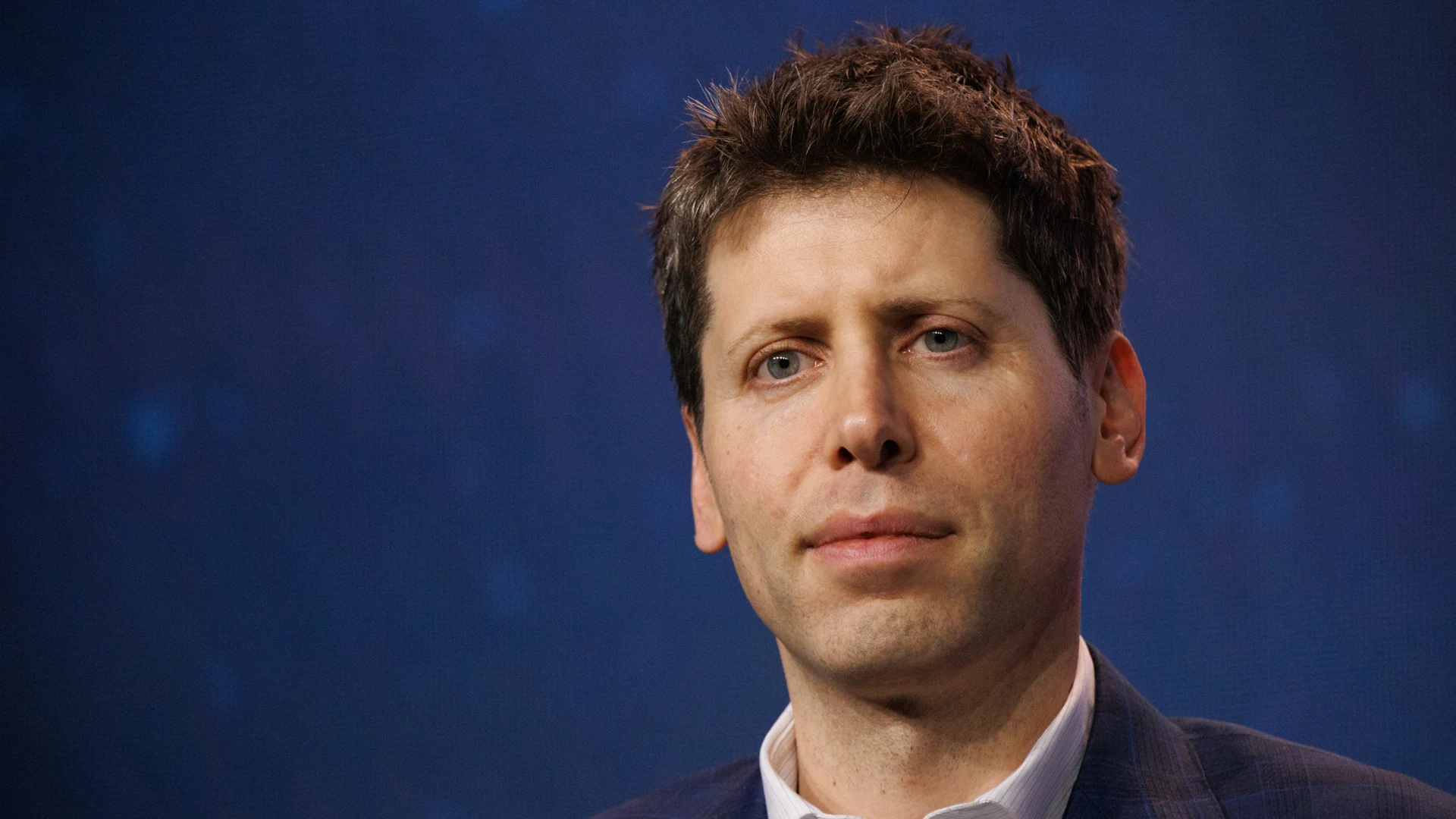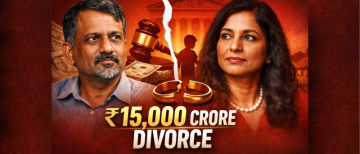In a world obsessed with the idea of “following your passion,” entrepreneur and author Ankur Warikoo is challenging that narrative — and his inspiration comes from none other than OpenAI CEO Sam Altman.
In a recent LinkedIn post, Warikoo quoted Altman to make a bold statement: “Forget passion. Forget psychometric career tests. Forget experience too.” Instead, he urges young professionals to ask a far more revealing question — “What is difficult for others but easy for you?”
According to Warikoo, the answer to that single question holds the key to your superpower, your unfair advantage, and potentially, your true calling.

The Skill That Comes Naturally to You Is Your Superpower
Warikoo’s post struck a deep chord online, prompting thousands to rethink how they define a “dream career.” He shared that people often look in all the wrong places — passion tests, job titles, or role models — while the real answer hides in plain sight: the skills that feel effortless to you.
“Ask yourself,” Warikoo wrote, “what takes others two hours but takes you ten minutes? That’s your superpower. It’s the skill you don’t even realise is rare because it feels so easy to you.”
This idea, borrowed from Sam Altman’s reflections on career and success, challenges the romantic notion that we must find passion. Instead, it reframes the journey as one of recognition — discovering what already comes naturally and building on it intentionally.
Social Media Reacts: “Our True Strengths Hide Behind Effortlessness”
Warikoo’s post quickly sparked discussions across social media platforms. Many users praised the insight as both practical and eye-opening.
One commenter wrote, “Love this perspective — our true strengths often hide behind what feels effortless. Self-awareness is where real career alignment begins.”
Another added, “Identifying what feels effortless yet valuable is such a powerful way to find your edge. Thanks for sharing such practical and inspiring advice!”
A third commenter summed it up simply: “This is honestly a great perspective to think upon.”
The viral conversation highlighted how deeply this idea resonates — especially among millennials and Gen Z professionals, many of whom feel paralyzed by the pressure to “find their passion” early in life.

Ankur Warikoo’s 5-Step Guide to Finding True Passion
Beyond this post, Warikoo has often discussed the myths surrounding passion. In another LinkedIn essay, he shared five truths that every young adult should understand before chasing their “dream job.” These insights turn the typical narrative upside down and replace confusion with clarity.
1. Passion Is About Fulfillment, Not Money
According to Warikoo, true passion isn’t about fame, wealth, or external success — it’s about inner contentment.
“Most passionate people I know,” he writes, “are not necessarily rich, but they are deeply fulfilled.”
He emphasizes that passion should make you feel alive, not anxious about financial gain. Once money becomes the driving force, passion risks turning into pressure.
The takeaway? Passion should fuel your sense of purpose, not your bank account.
2. Most People Discover Passion Later in Life
Warikoo reminds readers that it’s completely normal to feel lost in your 20s. Society often tells young people to “find their passion early” and commit to it, but this expectation is both unrealistic and harmful.
Your 20s, he argues, are not for certainty but for exploration — a time to experiment, fail, and learn what truly excites you.
“Only a few people find their passion early,” Warikoo notes. “For the rest of us, it’s a process of discovery.”
This truth dismantles the myth of instant clarity and replaces it with the freedom to grow into your passion rather than stumble upon it fully formed.
3. Financial Stability Should Come First
One of the most misunderstood pieces of advice is “quit your job to follow your passion.” Warikoo disagrees.
Pursuing your passion without a financial foundation, he warns, can make it a source of stress instead of joy. When your livelihood depends on your passion too soon, the creative energy that once fueled it can disappear under financial anxiety.
His advice is pragmatic: build stability first, then scale your passion.
That balance ensures that what once inspired you doesn’t become what exhausts you.
4. Passion Is Deeply Personal and Unique
No one can hand you a blueprint for passion. Warikoo emphasizes that passion cannot be copied or borrowed from someone else’s life — it’s shaped by your unique mix of experiences, curiosity, and habits.
Trying to imitate someone else’s passion will only lead to frustration. Instead, look inward. Ask what sparks curiosity, what gives you energy, and what makes you lose track of time.
That’s where genuine passion begins to take shape.
5. Failures Often Reveal True Passions
Warikoo’s final insight flips the script on failure. He argues that the moments when you fall short or feel lost often point you toward your real interests.
Failure, he explains, strips away illusions and exposes what truly matters to you. It helps identify the work you care enough about to keep doing even when success isn’t guaranteed.
“Failures are not the end of the road — they are signals showing where your true passions lie.”
This idea reframes setbacks as guides, not obstacles.
The Myths and Realities of “Follow Your Passion”
While Warikoo’s advice resonates deeply, the obsession with passion isn’t new. For decades, motivational speakers, graduation speeches, and social media influencers have repeated the mantra: “Follow your passion and you’ll never work a day in your life.”
But as countless professionals have learned, it’s not that simple. In fact, researchers and career coaches have identified several myths about passion — and the truths that debunk them.
Myth 1: You Should Just Know Your Passion
Reality: Most people don’t. Passion rarely strikes like lightning; it’s cultivated over time through exploration and persistence. Many discover their true calling only after years of trying different things.
Myth 2: You Need to Find Your Passion Early
Reality: There’s no deadline. Your passions can evolve as you do. The pressure to figure it out young often leads people to choose prematurely — and regret it later.
As Harvard researcher Jon M. Jachimowicz notes, it often takes time to develop passion for a job, along with the skills and relationships that sustain it.
Myth 3: Passion Guarantees Success
Reality: Passion is powerful but incomplete. Success also depends on skill, discipline, business sense, and resilience. You must turn passion into value — something others will pay for or appreciate.
Without that, passion remains a hobby, not a career.
Myth 4: You Only Have One Passion
Reality: Humans are multi-passionate by nature. You might love writing and teaching, or data and design. Allowing multiple interests can make your career far more fulfilling.
As business author Emily Perron puts it, “When I stopped trying to find my one true passion, I discovered the beauty of multi-passions.”
Myth 5: Turning Passion Into Work Always Leads to Happiness
Reality: Sometimes, monetizing your passion kills the joy. When deadlines, client expectations, or financial pressures enter the picture, the thing you once loved can become a burden.
That’s why some people prefer to keep their passions outside their 9-to-5, finding balance instead of burnout.
Myth 6: Passion Lasts Forever
Reality: Passions evolve. Life stages, responsibilities, and new experiences can shift your focus. To keep your passion alive, you must nurture it with purpose and novelty — connecting it to a deeper meaning while finding fresh ways to express it.
Myth 7: Pursuing Passion Is Selfish
Reality: Quite the opposite. Writer Courtney Christenson argues that not pursuing your passion deprives your loved ones of seeing your authentic self. Living aligned with your passions inspires those around you — especially children and partners — to do the same.
“When you don’t pursue your passion,” Christenson writes, “it robs the world of your voice, influence, and potential.”
Myth 8: It’s Too Late to Find Your Passion
Reality: It’s never too late. History is full of late bloomers — Morgan Freeman, Julia Child, Vera Wang, and Colonel Sanders — who discovered their calling well into adulthood. Passion doesn’t expire; it simply matures with time.
The Balanced Truth: Passion + Skill + Purpose
As Warikoo and Altman’s philosophies suggest, passion alone isn’t enough — but ignoring it completely isn’t wise either. The sweet spot lies in aligning passion with skill, purpose, and value.
When your natural abilities meet something you care deeply about — and it also solves a real-world problem — that’s where sustainable success begins.
So, instead of chasing your passion blindly, start by asking:
-
What feels easy for me but hard for others?
-
What energizes me even when it’s difficult?
-
How can I use that to help others or create value?
That’s not just a career strategy — it’s a life philosophy.
Final Thoughts
In an age when “follow your passion” has become cliché advice, Ankur Warikoo’s reinterpretation — inspired by Sam Altman — offers a more grounded truth. Passion is not a treasure you stumble upon; it’s a skill you nurture, a strength you recognize, and a purpose you build over time.
So forget chasing passion for its own sake. Instead, find your superpower — that unique skill that comes effortlessly to you — and let that guide your journey.
Because in the end, success doesn’t belong to those who find their passion first. It belongs to those who understand their strengths, align them with purpose, and never stop growing.
With inputs from agencies
Image Source: Multiple agencies
© Copyright 2025. All Rights Reserved. Powered by Vygr Media.























